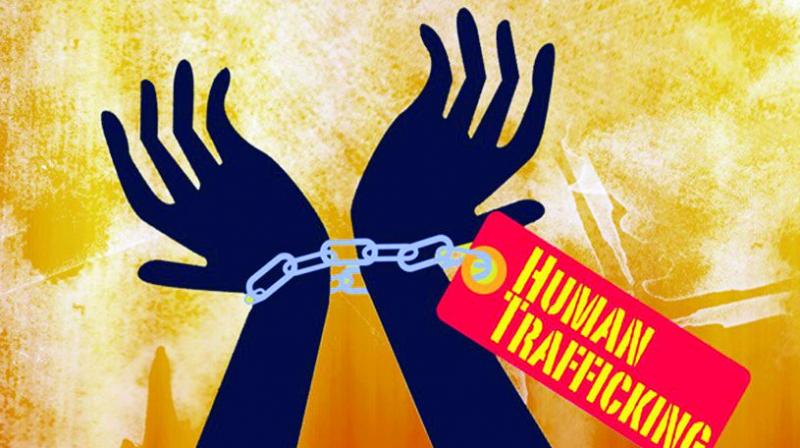Telangana: Women in distress lured into flesh trade
Agents entice women with jobs, money and visas.

HYDERABAD: In an alarming trend, organised human trafficking gangs are sending women, most of whom who hail from poor socio-economic backgrounds, from the state to foreign countries and are forced into prostitution.
The agents, according to women’s rights activists, are luring single women or those in distress with the offers. “A sum of Rs 2 to Rs 3 lakh is paid to them apart from airfare and tourist visa. They are signed up on contract for a period of three months,” a source said.
Countries like Thailand, Malaysia, European countries, Middle East, including UAE, Australia and other countries are the destinations for traffickers. “The incidence is rising fast. Women are being lured through social media, and even those from middle class families are getting trapped,” said Padma Shri awardee Dr Sunita Krishnan of Prajwala.
After the contract ends, the women return to the country. “Sometimes, they go to the destination country alone and find accommodation,” said Jameela Nishath of Shaheen Women Resource and Welfare Association, an NGO based in Old City.
Ms Krishnan said that the two Telugu states had the infamy of being the second worst in the country in human trafficking. West Bengal tops the list.
“Initially, the gangs were involved in local activity, but with technology put use to boost the illegal trade, they are now in touch with agents across the world. The Telugu states are supplying more women than any other state,” a women activist said.
The women are taken abroad on pretext of jobs like house cleaners, beauticians and sales women. “In certain cases, the traffickers use tourist visas to send them abroad. Before the expiry of the visa, the women are sent back to avoid the networks getting noti-ced by security agencies,” said MBT leader Amjedullah Khan.
“We do not come to know about the explo-itation when women go voluntarily. Only when they come forward and report do we initiate action and follow it up,” a police official said.
Bill against human trafficking on anvil
A Bill proposing 10 years punishment for those engaging in human trafficking is on anvil and will be introduced in Parli-ament shortly. The Trafficking of Persons (Prevention, Protection and Rehabilitation) Bill is currently with a committee of group of ministers.
“A 10-year punishment for those engaging in human trafficking is proposed in the Bill, which also includes bonded labour, sexual exploitation, pornography, begging and categorises them as heinous crimes. It will be placed in Parliament after the GoM clears it,” said Sunita Krishnan of Prajwala NGO.
The Bill proposes the establishment of a national anti-trafficking bureau. The bureau will be entrusted with coordination, monitoring and surveillance of illegal movement of persons and its prevention. It will coordinate with authorities concerned and organisations in foreign countries for long-term intelligence for investigation of trafficking cases. The Bill details offences and issues pertaining to forced labour or bonded labour by using violence, intimidation, inducement, promise of payment of money, deception or coercion. Also, it mentions trafficking after administering any narcotic drug or psychotropic substance or alcohol, or for the purpose of marriage or under the pretext of marriage.
The aggravated form also includes trafficking for the purpose of begging or forcing those who are mentally ill or are pregnant to beg.
As of now, police use different Sections of IPC and other special laws to deal with cases of human trafficking. “Once the new law is passed, the police will be fully empowered to deal with the issue,” said NRI activist Bheem Reddy.
The Bill has stringent provisions for “buying or selling” a person, engaging in trafficking with the help of media, including print, internet, digital or electronic. It stipulates a punishment of not less than seven years, which can go up to 10 years and a fine not less than Rs 1 lakh.
It also has provisions for setting up anti-trafficking units and officers to provide relief and rehabilitation services to victims.

